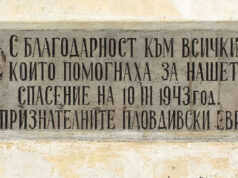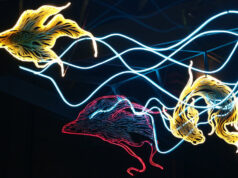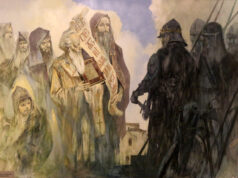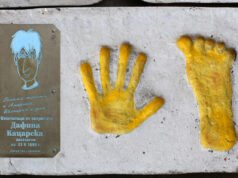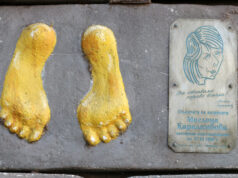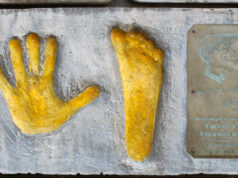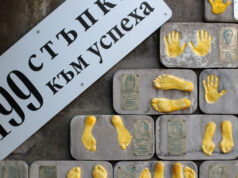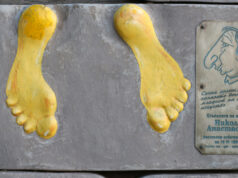 Only a patriot’s pen could produce Liuben Bojkoff’s small treatise Bulgaria is Not the Land of Roses Only. The author, a civil engineer, lecturer at the Technical University in Sofia, and President of the Bulgarian National Geographic Committee, writes about his country with a heartfelt love and desire to show both her past accomplishments and future potential. Published on the eve of the communist era, Bojkoff musters all of his professional skill to deliver a useful and informative apologetic for the Bulgarian people and nation.
Only a patriot’s pen could produce Liuben Bojkoff’s small treatise Bulgaria is Not the Land of Roses Only. The author, a civil engineer, lecturer at the Technical University in Sofia, and President of the Bulgarian National Geographic Committee, writes about his country with a heartfelt love and desire to show both her past accomplishments and future potential. Published on the eve of the communist era, Bojkoff musters all of his professional skill to deliver a useful and informative apologetic for the Bulgarian people and nation.
The title refers not only to the well deserved place of Bulgaria on the world stage as a major source for attar of roses, the rare and expensive natural ingredient for perfume and other scented products, but also to the author’s disappointment that rose oil production is often the only fact of interest about Bulgaria in many contemporaneous geographical atlases of the region.
The book is divided into two sections, with the first describing the history of Bulgaria, and the second focused on present day interests, mostly related to the physical and industrial geography of the country.
Table of Contents:
1. Introduction
2. Why Was This Book Written
3. Bulgaria is Not Only the Country of Roses
4. Bulgaria Should be Discovered Again for the World
5. Geographic Features
6. Bulgaria – An Aegean Sea Country
7. Sketch of Bulgarian History
8. Literature and Cultural Achievements
9. Bogomilism
10. Military Power
11. Tzar Samuel, 971-1014
12. Characteristic Cruelty, 1014
13. Decline. The Turks Conquer Bulgaria, 1241-1393
14. Bulgaria Under the Turkish Yoke, 1393-1878
15. Church and Spiritual Slavery
16. Backwardness in Spiritual Matters
17. A Small Illustration
18. The Renaissance of the Bulgarian Nation
19. Bulgarian Exarchate. National Bulgarian Church, 1872
20. Schism; The Greek Anathema, 1872
21. The Turkish Rule of that Time
22. Insurrection and Atrocities, 1595-1876
23. The Conference of Ambassadors at Constantinople, 1876-77
24. Ruso-Turkish War, 1877-78
25. This Situation Resulted in Wars, 1885-1914
26. The Peace Treaty of Nuilly, 1919
27. What a French Author Says about the Bulgarians
28. Western Thrace
29. Fooling with a Sea Coast
30. The Aegean Sea Locked by the Greeks!
31. Opinions on the Bulgarian Outlet to the Aegean Sea
32. Ancient Hellenic Colonization
33. The Population of Thrace
34. The Spirit of the Bulgarian Population and the Terror Exercised over it
35. A Comparison between Bulgarian and Greek Schools, 1904
36. Greek Atrocities Committed against the Bulgarians during 1920-1940
37. Modern Greek Cruelties
38. The Greek “Voulgarophaghi”, 1913
39. Bulgaria is the Land of Peace and Labour
40. A Synopsis of the History of Bulgaria
41. What Distinguishes Present Day Bulgaria
42. Some Geography
43. Bulgaria is a Peasant Country
44. Bulgaria is a Land of Small Ownerships. This is the Background of Her Democracy
45. Agricultural Production
46. Export of Agricultural Products in 1938
47. Foreign Trade Development
48. Industry
49. Labor Forces of Bulgaria
50. Literacy and Education
51. Bulgarian Reading Rooms
52. Cooperative Activity in Bulgaria
53. Public Insurance
54. Bulgarian Railroads
55. Other Means of Communications
56. An Important Problem of Communications
57. Construction Works
58. Conclusion
Appendices:
Appenix I A-E Graphic Synoptic History of Bulgaria
Appendix II Bulgarian Railways
Figures:
The Central Position of Bulgaria in the Balkan Peninsula
The Sources of the Balkans’ Most Important Rivers
The Accessibility of the Central Mountain Range in the Balkan Peninsula
Roman Roads and the Danube Bridges
Bulgaria and Western Thrace
The Aegean Coast Passes from Hand to Hand
Greece Wishes to have Locked for Herself the Aegean Sea
Hellenic Colonization from the 8th to the 4th cent. BC
Map by Prof. A. Philippsohn – Aegean Sea Coast
The Forced Expatriation of the Aegean Bulgarian Population
The Greek “Bulgarophaghi” – The Eaters of Bulgarians
Population and Territory
Town and Village. Householders; Population According to Age
Use of the Land
Occupations. Artisans
Distribution of Farming Land. Forests
Export of Agricultural Products which are Characteristic of the Recent Change in the Economic Structure of Bulgaria
Ditto
Import and Export
The Foreign Trade of Bulgaria
School, Teachers, Scholars
National Education
Literacy
Public Libraries; Publishing
Cooperatives
Credit Institutions. State Agricultural and Cooperative Bank
Bank Deposits
Trans-Balkan Railroad Artificial Development
Trans-Rhodope RR. Artificial Development
Citation:
Bojkoff,Liube. Bulgaria Is Not The Land Of Roses Only. (Sofia: Chr. G. Danoff), 1946.



